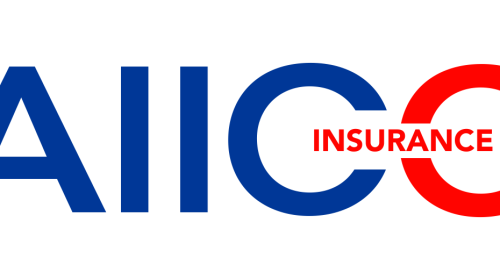Insurance: Making sector relevance through innovation, right product
The sector in 2014 witnessed some leap, though saddled with challenges involved in preparing International Financial Reporting Standard (IFRS) based account. This saw most insurance companies holding 2012 annual general meeting in the first quarter of the year which normally would have been held in 2013. The sector was equally faced with the responsibilities of raising its contribution to Gross Domestic Product (GDP) which was further dragged down from seven to six per cent following the nations economic rebasing that took place the same year.
Sectors performance
Insurance sector, no doubt witnessed significant improvement as estimated volume of business written by the sector to grew to N285 billion in 2013, showing surge of 15 per cent when compared with N247.58 billion recorded in 2012. Volume of premium written under compulsory insurance as well grew from N14.93 billion in 2009 to N28.68 billion in 2012 even as number of policies written under this class of insurance within the period equally appreciated shapely by 111 per cent from 72,180 in 2009 to 152,181 at the end of 2012 with motor and life accounting for an average of 45 per cent of the premium.
In the vein Insurance stocks performed markedly well in 2013 given the return of 40.48 per cent with the sustenance into 2014 as year-to-date (YtD) return currently pegs at 10.95 per cent.
This growth the Chairman Nigeria Insurers Association (NIA) GUS Wiggle attributed to the relative stability and sustained growth in the economy, increasing insurance awareness and government patronage of insurance services, innovations and improved service delivery by insurance companies combined with the growing confidence in the insurance system by the general public.
Though the sector need to do more given the huge population of over 160 million at its disposal, the rising urban population and emerging middle-class which the sector continues to explore.
Events for the year
President Goodluck Jonanthan within the period under review approved the reappointment of Mr. George Onekhena as deputy commissioner for Insurance (Finance and Administration) of the National Insurance Commission for a second and final term of five years.
The commission said Onekhena’s reappointment was conveyed in a letter referenced SGF. 47/S.9/11/636, dated December 11, 2014 and signed by the Secretary to the Government of the Federation, Senator Pius Anyim, was in line with the provision of Section 11(5) of the National Insurance Commission Act 1997 and the reappointment was with effect from November 29, 2014.
Onekhena was first appointed deputy commissioner for insurance in November 2009 by the President for a five year term which ended in November, 2014. During the period, analysts said Onekhena displayed good knowledge of the insurance industry leading to the transformation being witnessed in the industry at the moment.
Similarly, underwriters under the aegis of the Nigerian Insurers Association (NIA) changed mantle of leadership which ushered in GUS Wiggle as the 21st chairman of the association after serving it for three year as the deputy chairman. One of his core mandate, according to him, was focusing on reviving the defunct insurance sector oil and gas pool, now to be officially known and recognized as Energy and Allied Insurance Pool of Nigeria (EAIPN) . The rational behind the initiative was to assist the sector improve on the needed capacity for the oil and gas insurance business.
It is believed that if the insurance companies can pull their resources and expertise together, they will regain the necessary capacity to surmount all restrictions in order to enjoy the golden opportunity provided through the local content Act.
“Nigeria has the comparative advantage in the production of Oil and Gas. We will therefore fast track the process of re establishing the Oil & Gas Insurance Pool so that the industry can reap the full benefit of the Nigerian Local Content Development Act”, said the new NIA Chairman Wiggle while delivering an acceptance speech during his investiture as the associations chairman in Lagos.
He pledged to enforce market discipline by encouraging peer review among member companies with a view to aligning the market practice with international best practices.
Wiggle equally pledged to sustain the current effort at addressing laws that are militating against the growth of the insurance market. The Companies Income Tax Amendment Act (CITA) 2007 amongst others. To this effect, Wiggle who led a delegation of the Governing Council on a courtesy visit to the Hon. Minister of State for Finance, Ambassador Bashir Yuguda in his office in Abuja, where the association appealed to the federal government to suspend or waive some sections of the Companies’ income Tax Act (CITA) 2007 in order to save the insurance industry from collapse as the law places a heavy tax burden on insurance companies operating in Nigeria, thus making it unattractive to investors.
Insurance brokers operating in Nigeria, under their umbrella body, National Council of Registered Insurance Brokers (NCRIB) within the period continued to intensify effort aimed at driving out fake insurance brokers practicing in the country. Consequently, the President of the council continued to urge its members to continually complement the effort of the council in the enforcement of ethics and elimination of charlatans in the system. “This task is a collective one and it behoves us all to mount surveillance across the zones of the country to ascertain those who are practicing as insurance brokers illegally, with a view of bringing them to book”, he said.
As well, the professional arm of the industry, the Chartered Insurance Institute of Nigeria (CIIN) remained consistent in designing programmes aimed at equipping the sector with the necessary skills.
The industry regulator, National Insurance Commission (NAICOM) remained committed to solidifying the industry’s configuration on the back of new regulatory measures. Recapitalization regulation, Market Development and Restructuring Initiative (MDRI), adoption of IFRS reporting style, introduction of “No Premium No Cover”, and issuance of guidelines on Micro-insurance and Takaful are some of the efforts in place. The commission has never relented in creating enabling environment for the sector, which will in turn promote insurance business in country to enhance penetration and patronage.
Mergers and Acquisition
The industry in recent time witnessed certain restructuring as most insurance companies embarked on intra- and inter-industry collaborations. Mergers between Wapic Insurance and Intercontinental Properties, Custodian & Allied Insurance and Crusader Nigeria Plc. were recently concluded. Deals on acquisition of 100 per cent stake in Oasis Insurance Plc. by FBN Life Assurance Limited, Oceanic Life Assurance’s acquisition by Old Mutual Nigeria Ltd were also sealed
Growth Strategies/ Prospects for 2015
Experts hinged the growth of insurance industry to right product, innovation and delivery.
According to them, for the sector to thrive, it need to wholly embrace financial inclusion as well as develop technical capacities to meet the emerging challenges of financial inclusion and micro-insurance. Hence, this therefore calls for more dynamic strategies to deepen insurance reach amongst the vast populace.
On his part, the Commissioner for Insurance, Mr. Fola Daniel, insurers must change their marketing strategy; product design and packaging must change; approach to policyholders and their complaints must change and all hands must be on deck to ensure that the message of insurance is taken to the grassroots.
Daniel said, “If we must move the insurance market from its present level to an optimal pedestal within the financial services sector, then there must also be a consensus on how best to tackle the challenges. We have a lot to offer but we seem not to be taking advantage of the huge potential before us. The fundamentals for thriving insurance industry are there in the country -a vast population, an active economy and a well-capitalised industry.”
Meanwhile, he has given assurance that the commission would consolidate on the gains made so far in compulsory insurance, ensure proper implementation of the compulsory insurance products, grow the market in order to make meaningful contribution to GDP.
He called insurance operators across the country to come up with new ways of distributing insurance products to the proportion of over 160million Nigerians that are not yet insured.
Operators on their part, noted that making insurance relevant to those sectors that have made meaningful contribution to GDP and other areas the sector is yet to penetrate will surely help.
The Director General, Nigeria Insurers Association (NIA), Mr. Thomas Sunday, said: “We should leverage on those that have contributed to the GDP to take maximum advantage of them to shore up our contribution. We should ensure that insurance is made relevant in those areas. There are those areas that have not been taken into consideration in determining the nation’s GDP . So when you look at those areas like Telecom, the industry is leveraging on that, entertainment, the industry is yet to get to the area, now we can make insurance relevant in the entertainment industry. By the time we extract these initiatives and others definitely contribution to GDP will grow.
Similarly, the Managing Director, Mansard Insurance Plc, Mrs. Yetunde Ilori, urged the sector to use all available channels to drive insurance penetration
“What will get us there is penetration; that is why we talk about using all available channels to reach people who are yet to be reached. It is not only affordability, because if you add people who can afford insurance products who have not bought it, they are enormous. We can grow this business via entertainment, like I always said it contributes. When you look at the service sector under the last rebasing that has moved from 26 to 51 per cent, entertainment contributes a lot. And I believe that that will drive urbanization, then people will move to the urban centers and that will be a lot associated with that the insurance sector will tap into.”
Conclusion
To ensure speedy rebound of insurance sector for greater impact to GDP, all outstanding laws relating to insurance business should be implemented.
There is need for the Government to renewed commitment to the sector in terms of regulation and patronage. Operators on their part should be innovative as well as position themselves to leverage on NAICOM already existing initiatives to grow their bottom-line.
Culled from Peoples Daily Newspaper







Leave a Reply